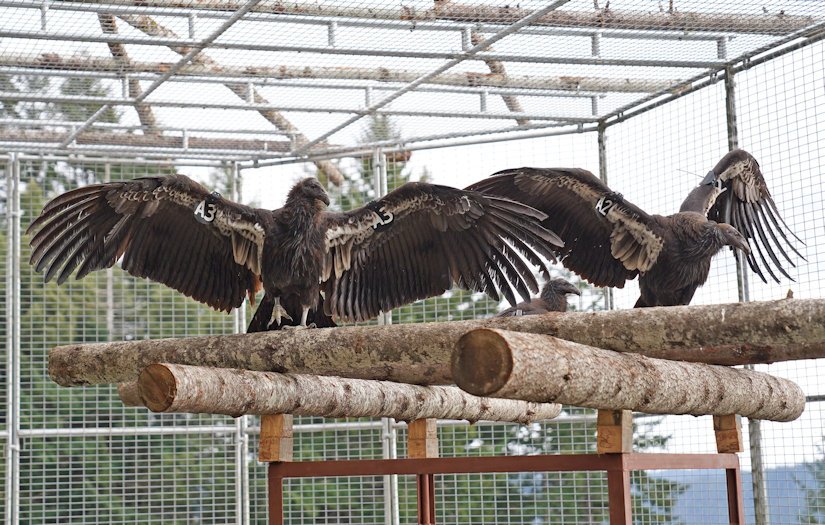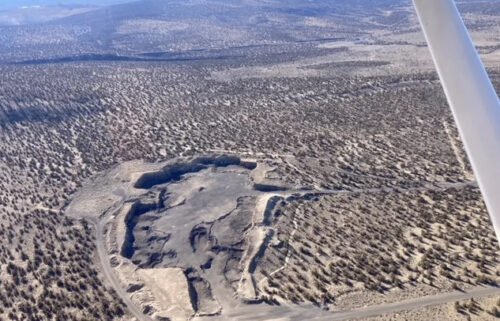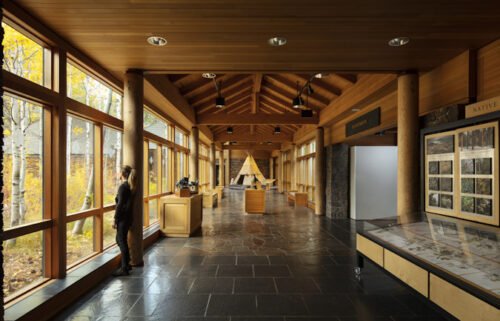Condors soar again over Northern California coastal redwoods

REDWOOD NATIONAL PARK, Calif. (AP) — The endangered California condor returned to soar the skies over the state’s far northern coast redwood forests on Tuesday for the first time in more than a century.
Two captive-bred birds were released from a pen in Redwood National Park, about an hour’s drive south of the Oregon border, under a project aimed at restoring the giant vultures to their historic habitat in the Pacific Northwest.
The two male condors were moved into staging area at late morning and a remotely controlled gate was opened. After a few minutes of warily eyeing the opening, the birds stepped one by one through the opening, spread their giant wings and took off.
“They just jumped up and took flight off into the distance,” Tiana Williams-Claussen, wildlife director for the region’s Yurok tribe, said in a webcast.
Condors were last spotted in the park area around 1892, authorities said. The California condor is the largest native North American bird, with a wingspan of nearly 10 feet (3 meters). The scavenger was once widespread but had virtually disappeared by the 1970s because of poaching, lead poisoning from eating animals shot by hunters and destruction of its habitat.
The birds can live for 60 years and fly vast distances in search of carrion, so their range could extend into several states.
Federal and local fish and wildlife agencies are involved in the restoration project headed by the Yurok tribe, which traditionally has considered the California condor a sacred animal and has been working for years to return the species to the tribe’s ancestral territory.
“For countless generations, the Yurok people have upheld a sacred responsibility to maintain balance in the natural world. Condor reintroduction is a real-life manifestation of our cultural commitment to restore and protect the planet for future generations,” tribal Chairman Joseph L. James said in a statement.
Two more condors were set to be released later — after biologists determine that the two birds who took to the skies Tuesday have displayed appropriate behavior, authorities said.
The condors, including one female and three males, are between 2 and 4 years old. Two were hatched at the Oregon Zoo and two at the Peregrine Fund’s World Center for Birds of Prey in Idaho.
In the early 1980s, all 22 condors remaining in the wild were trapped and brought into a captive-breeding program that began releasing the giant vultures into Southern California’s Los Padres National Forest in 1992.
That flock has been expanding its range while other condors now occupy parts of California’s Central Coast, Arizona, Utah and Baja California, Mexico. The total population now numbers more than 500 birds in captivity and in the wild.
Two years ago, California condors were spotted in Sequoia National Park, in California’s Sierra Nevada, for the first time in nearly 50 years.
However, that same year, a dozen adults and two chicks died when a wildfire set by an arsonist ravaged their territory on the Big Sur coast.



